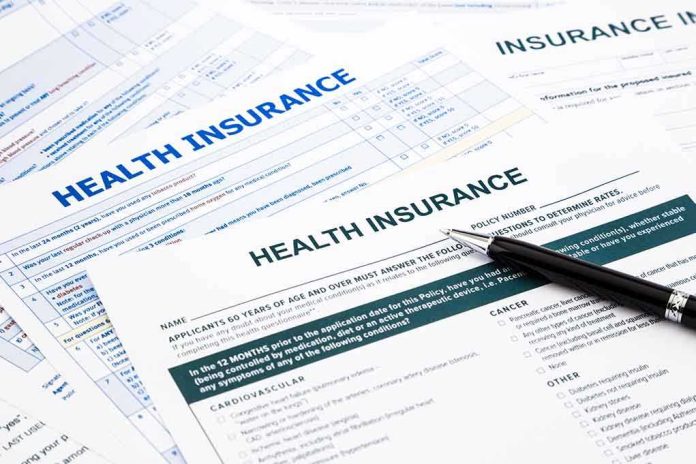
With the Department of Justice grilling former UnitedHealth employees over Medicare billing schemes, Americans are left to wonder: just how much taxpayer money is evaporating into the black hole of government-managed healthcare—and is anyone ever going to be held accountable?
At a Glance
- DOJ questions former UnitedHealth staff over alleged Medicare Advantage upcoding
- UnitedHealth denies wrongdoing, calls media coverage “deeply irresponsible”
- CMS to audit every Medicare Advantage plan annually amid rising scrutiny
- Taxpayers risk billions in potential overpayments due to disputed coding practices
DOJ Scrutinizes UnitedHealth’s Medicare Advantage Billing
The Department of Justice is actively questioning former UnitedHealth Group employees as part of its intensifying investigation into the insurer’s Medicare Advantage billing practices. At the heart of the probe: whether UnitedHealth deployed medical professionals to trawl through patient records and conjure up diagnoses that would fatten its government reimbursements. The feds want to know if the company made patients appear sicker on paper than they really were—an old trick in the Medicare Advantage playbook known as “upcoding.” This is hardly a new concern; nearly every major insurer has faced similar accusations or settlements over the years, but UnitedHealth’s sheer size and reach make the ramifications of this investigation especially consequential for taxpayers and the healthcare market.
In 2021 alone, UnitedHealth reportedly pocketed $8.7 billion for diagnoses that were never actually documented in treatment claims. That’s right—nearly nine billion dollars in taxpayer funds, potentially based on nothing more than creative paperwork. The Centers for Medicare & Medicaid Services (CMS) is now vowing to audit every single Medicare Advantage plan annually. That’s a serious escalation, signaling that Washington finally realizes just how much is at stake when bureaucrats hand private insurers a blank check with little real oversight.
UnitedHealth Fires Back While DOJ Ramps Up Pressure
UnitedHealth Group, for its part, is circling the wagons. The company insists it has received no formal notification of a criminal investigation and claims its coding practices are among the most accurate in the industry. UnitedHealth has even lashed out at the media, particularly The Wall Street Journal, for what it calls “deeply irresponsible” reporting. In a statement dripping with corporate outrage, the insurer points to a special master’s recent recommendation to dismiss a decade-old fraud lawsuit for lack of evidence. Of course, that recommendation isn’t binding—a final judicial decision is still pending. Meanwhile, the DOJ’s broader crackdown on healthcare fraud continues, with the government charging hundreds of defendants in recent takedowns involving over $146 million in alleged false billings. The message is clear: Uncle Sam wants his money back, and he’s finally willing to start asking tough questions at the top.
The investigation remains ongoing, with no formal charges or damning public findings yet. But the longer these questions hang in the air, the more the pressure mounts—not just on UnitedHealth, but on the entire Medicare Advantage sector. If DOJ investigators uncover systemic abuse, the fallout could reshape how these billion-dollar programs operate for years to come.
Taxpayers, Patients, and Providers: Who Pays the Price?
It’s hard not to marvel at the sheer audacity of a system where private insurers rake in extra cash by allegedly “discovering” illnesses out of thin air—while taxpayers foot the bill. If the allegations are true, this isn’t just about one company’s questionable judgment. It’s about a federal program that incentivizes exactly this kind of behavior, with little real consequence for those caught red-handed. UnitedHealth’s Medicare Advantage enrollees could soon see tighter eligibility or changes to their plans, while honest healthcare providers brace themselves for even more paperwork and compliance headaches.
Taxpayers, meanwhile, are left to wonder if any of the billions siphoned off in bogus billing will ever actually be recovered. When bureaucrats let insurers police themselves, is it any wonder that “creative coding” becomes a billion-dollar industry? The DOJ’s probe might finally force some accountability—but don’t hold your breath for a Washington miracle. With CMS ramping up audits and regulators finally waking up, the rest of the industry is now scrambling to clean house before the investigators come knocking on their doors.







